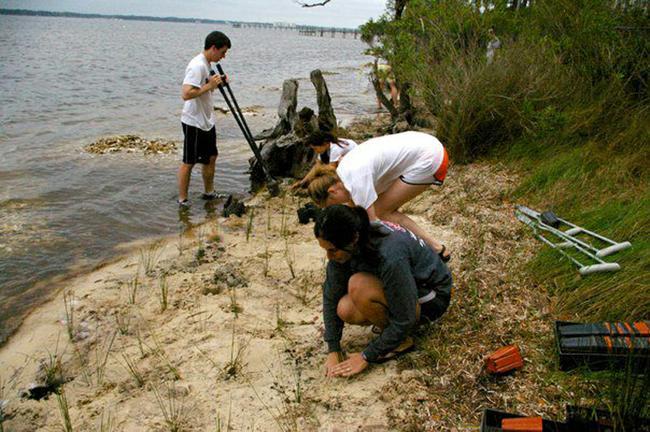A new study by MU and the University of Illinois found that though volunteer tourism benefits individual tourists and communities, not all aspects of this up-and-coming trend are positive. The study discussed tips to help volunteer tourism remain safe and interesting.
Carla Barbieri, assistant professor in the MU College of Agriculture, Food and Natural Resources, and Carla Almeida Santos, associate professor of recreation, sport and tourism at the University of Illinois, collaborated on the study “Volunteer Tourism: On-the-ground Observations from Rwanda.”
The study compares former MU graduate student Yasaharu Katsube’s experiences as a volunteer tourist in Nyakinama, Rwanda to previous volunteer tourism research.
“Our study examined the role of project facilitators in the experiences of volunteer tourists,” Santos said. “Specifically, we looked at the relationship between facilitation and implementation of volunteer tourism experiences. We also looked at the volunteer tourists’ experiences in Nyakinama, Rwanda.”
Volunteer tourism is a combination of leisure travel and voluntary work, Barbieri said.
“Volunteer tourists look for helping others and having fun while traveling,” Barbieri said. “Volunteer tourists are different from other tourists because they pursue a close person-to-person interaction with the host community, as well as experiences that blend with their social values.”
Volunteer tourists typically travel to underdeveloped destinations, especially in Latin America and Africa, Barbieri said. Recently, more people have been traveling to destinations in the U.S. that have been affected by severe natural disasters, such as New Orleans and Joplin.
The study shows multiple ways to get involved with volunteer tourism. Commercial tour operators and various organizations recognized worldwide, including Youth Challenge International and Voluntary Service Overseas, offer various volunteer tourism opportunities.
“Many get involved through their religious and social movement groups,” Santos said. “Others, like college students, find ways to become involved through alternative spring break opportunities. And there are some, like Yasuharu Katsube, that searched online looking for a volunteer tourism facilitator.”
The study determined although volunteer tourism is overall a positive experience, there are areas upon which project facilitators can improve. Both communities and tourists benefit from volunteer tourism, and tourists experience intrinsic rewards such as a greater self-awareness, changes in values and personal consciousness and bonds with local people, Barbieri said.
“Communities benefit from infrastructure development (such as the construction of homes), education (such as the provision of teachers), provision of other basic services such as medical assistance, as well as tourism development,” Barbieri said. “While potentially transformative, not every aspect of volunteer tourism is positive. For example, volunteer tourists can contribute to foreign dependence. Locals can also come to resent the wealth of the volunteer tourists.”
One of the most surprising findings was the lack of communication between volunteer tourists and those facilitating volunteer tourism experiences, Santos said.
Volunteer tourism will be increasing in momentum in the future, Santos said.
“We are increasingly seeing graduating high school seniors taking a year off before going to college to pursue volunteer opportunities in different parts of the world,” Santos said.








